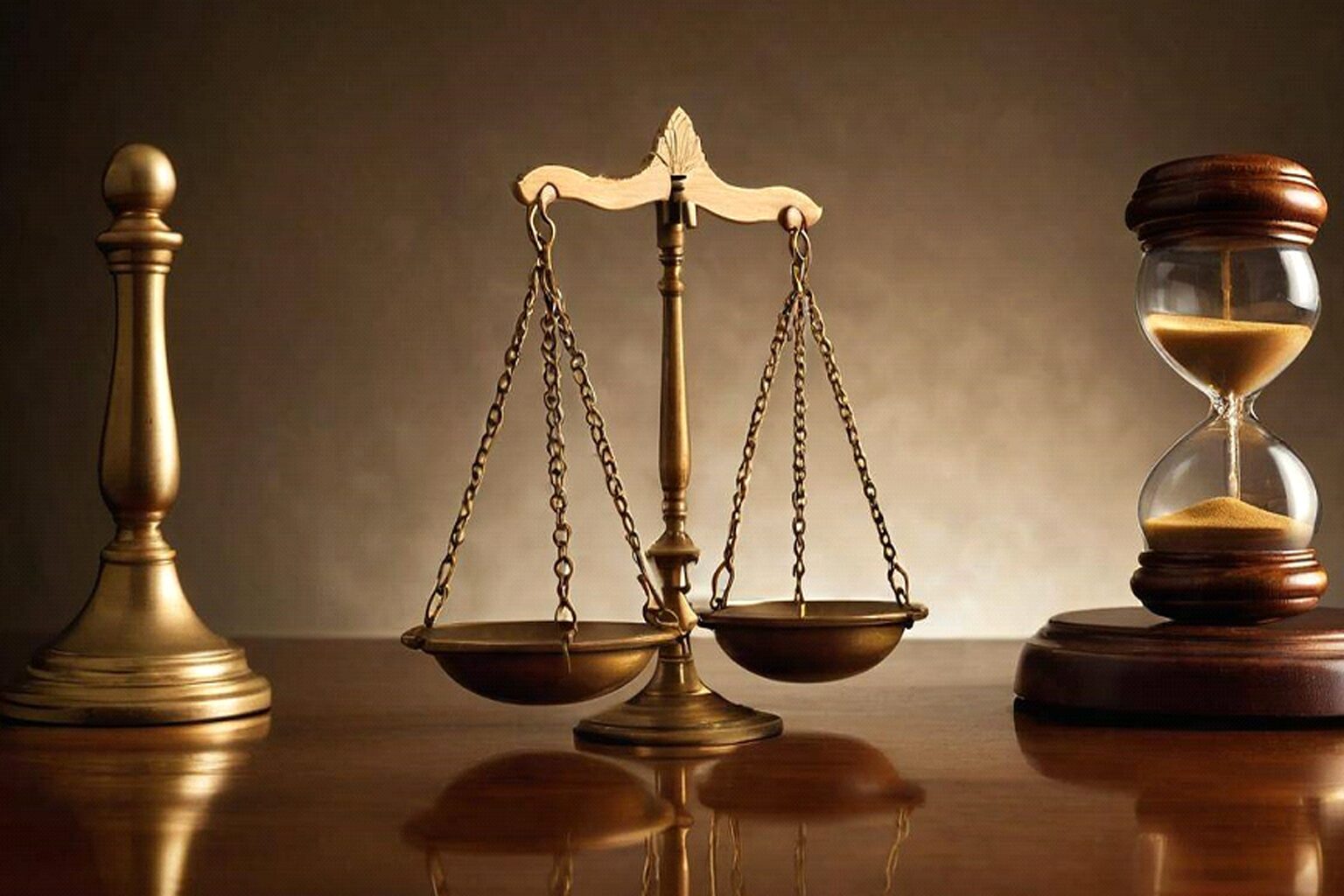Birth Injury Lawsuits in Ireland: Understanding the Role of Experts and Seeking Compensation
Experts are like the guiding stars in birth injury lawsuits in Ireland. They use their wisdom about medical matters to help the court see things clearly. These truth-tellers, with their proofs and facts, make sure that claims are supported and justified. In a world where law and medicine meet, they hold the torch. To seek what is due, it begins with their words.
In birth injury lawsuits in Ireland, medical experts play a crucial role by providing professional opinions and expertise to assess whether negligence occurred and directly caused the injury. These experts assist in gathering medical evidence and offering assessments that are instrumental in supporting birth injury claims.
Role and Importance of an Expert Witness
Consider this: birth injury cases involve intricate medical matters, and not everyone is expected to grasp them in detail. This is where expert witnesses step in. These professionals have the expertise to explain and interpret medical terminology in a way that anyone can understand. Their role is crucial in educating the court and jurors about the standard of care, causation, and the impact of medical negligence on the injury. In simple terms, they help bridge the gap between medical complexities and legal proceedings.
Experts play a vital role in shedding light on the critical matters involved in birth injury lawsuits. They provide objective and evidence-based analysis to support the plaintiff's claim.
Objective Analysis and Testimony
Expert witnesses offer an impartial evaluation of the case based on their specialised knowledge and experience. Their testimony isn't influenced by personal bias; instead, it's grounded in facts, research, and their understanding of medical standards. This adds a layer of credibility to the plaintiff's claim and helps counter any opposing viewpoints presented by the defendant.
Influence on Case Outcome
The influence of expert witness testimony on the outcome of a birth injury lawsuit is significant. Jurors rely on the expert's evaluation and guidance to make informed decisions. These professionals bring clarity to complex medical concepts and help the jury connect the dots between medical negligence and its consequences. Their contribution often becomes a pivotal factor in determining whether the plaintiff receives compensation for the injuries suffered.
In essence, expert witnesses serve as educators during legal proceedings by breaking down intricate medical details into digestible information. They support the plaintiff's case with authentic expertise and evidence-based opinions, serving as pillars of credibility essential for a fair trial in birth injury lawsuits. Their input isn't just valuable; it's often indispensable in navigating through the complexities of such cases.
As we discern the critical role of expert witnesses in birth injury lawsuits, it's time to transition into unfolding the detailed process of medico-legal investigations that underpin these intricate cases
Medico-Legal Investigation Process in Birth Injury Lawsuits

When a birth injury lawsuit is initiated, one of the initial steps involves gathering comprehensive medical records related to the pregnancy, labour, delivery, and postnatal care. These records are crucial as they provide a detailed timeline and documentation of the medical care provided. They form the basis for identifying instances of negligence or improper care that may have led to the birth injury.
The meticulous review of these medical records by both legal and medical experts is a critical aspect of the investigation process. Legal professionals and medical experts work together to identify deviations from the expected standard of care during childbirth. Any discrepancies or red flags are thoroughly analysed, and the sequence of events is scrutinised to ascertain if there were any lapses in adherence to established medical protocols.
For instance, if a medical record indicates a delay in performing an emergency C-section despite clear indications of foetal distress, this could be flagged as a potential instance of negligence. On the other hand, evidence of timely interventions and appropriate obstetric care in response to foetal distress signals may bolster the case for proper medical care and refute claims of negligence.
To further assess the standard of care provided and determine if the birth injury was preventable or caused by medical negligence, expert consultation comes into play. Medical experts specialising in obstetrics and neonatology thoroughly examine the extensive array of medical records. Their expertise allows them to interpret these records through a specialised lens, identifying any departures from accepted medical practises and determining if these deviations directly contributed to the birth injury.
This process isn't just about pointing fingers; it's about understanding where things went wrong and why. It seeks to establish a clear link between the medical negligence and the resulting birth injury. The insights provided by these expert consultations serve as invaluable assets in building a robust case by presenting evidence-based opinions on whether the injury was avoidable had proper medical protocols been followed.
The medico-legal investigation delves deep into every aspect of the medical care provided during childbirth, leaving no stone unturned in its pursuit of uncovering the truth behind instances of potential negligence or malpractice that led to birth injuries. With extensive reviews and expert consultations at its core, this process plays a pivotal role in shaping and strengthening birth injury lawsuits in Ireland.
Proving Medical Negligence
Proving medical negligence in a birth injury lawsuit involves demonstrating that healthcare professionals breached their duty of care, which led to harm to the mother or baby. While this may seem overwhelming, breaking it down will help us understand it better.
Imagine your duty is to take care of a garden by watering the plants every day. If someone trusted you with this task and you neglected it, causing the plants to wither and die, then you've failed in your duty. Similarly, healthcare professionals have a duty of care towards their patients, especially during childbirth.
For instance, if a doctor fails to perform a necessary C-section in a timely manner despite clear signs of distress in the baby, this could be considered a breach of the duty of care. Likewise, if a medical professional fails to diagnose maternal health issues during pregnancy that lead to complications during birth, this could also be deemed as falling below the accepted standard of care.
To establish medical negligence in a birth injury lawsuit, it's important to demonstrate that the care provided fell below the accepted standard. This involves comparing what was done by the healthcare professionals to what should have been done according to established medical protocols and best practises. It's not just about an unfavourable outcome—it's about whether the actions taken or not taken were reasonable and aligned with standard medical procedures.
Furthermore, it's essential to show that this substandard care directly caused the birth injury or complications. This can be quite complex and requires gathering medical evidence and expert opinions to establish a clear link between the substandard care and the subsequent injury.
For instance, if there was a failure to monitor foetal distress during labour and delivery, leading to oxygen deprivation and cerebral palsy in the baby, expert testimony from obstetricians and neonatologists may be required to establish the causal link between the substandard care and the resulting birth injury.
In essence, proving medical negligence involves a comprehensive review of medical records, expert analysis of the care provided, and establishing a clear connexion between substandard care and the injury suffered. It's about demonstrating how different decisions or actions by healthcare professionals could have altered the outcome for the better.
By understanding these key aspects of proving medical negligence in a birth injury lawsuit, individuals can be better equipped to navigate the legal process with clarity and purpose.
With a firm grasp of what it takes to prove medical negligence in birth injury cases, let's now direct our attention to another crucial aspect of seeking justice—choosing your expert for a birth injury lawsuit.
Choosing Your Expert For A Birth Injury Lawsuit
When seeking justice for a birth injury, finding the right expert is pivotal. But where do you start? How do you know who is the best person to help you build your case? The journey begins by understanding the type of expertise crucial for these cases.
Given the complexity of birth injury claims, it's important to seek an expert with a deep understanding and extensive experience in related medical fields. Look for professionals with backgrounds in obstetrics, neonatology, or paediatric neurology. They possess specialised knowledge about birthing procedures, newborn care, and the long-term effects of birth injuries. Their insights are invaluable in understanding what happened during childbirth and establishing the impacts and long-term consequences of any negligence.
So, what should you specifically look for when considering an expert? Experience is key. Aim to find an expert who has at least 10 years of experience specialising in birth injury cases. This level of experience ensures that they have handled various complex scenarios and can navigate through the intricacies of your case with confidence. Additionally, it's beneficial to consider their track record in handling similar cases and their average success rate. This gives you an idea of how effective they have been in securing justice for their clients.
Beyond experience, it's equally important to examine their qualifications and reputation within the medical field. Assess their credentials, including any relevant certifications, affiliations with professional associations, and academic achievements. In these emotionally taxing times, having confidence in your expert's abilities and professionalism can make a significant difference.
Moreover, don't underestimate the value of personal connexions and recommendations. Reach out to other families who have pursued birth injury claims and inquire about their experiences with specific experts. Their firsthand accounts can provide valuable insights into the approach and demeanour of different professionals, guiding you toward making an informed decision.
Choosing the right expert is a crucial step in building a strong birth injury lawsuit. By prioritising experience, qualifications, and reputation within medical circles, you'll be better equipped to seek justice for medical negligence during childbirth.
Time Limits for Filing a Birth Injury Lawsuit in Ireland
In Ireland, specific time limits are set for filing a birth injury lawsuit. Understanding these time limits is crucial, as they play a significant role in determining the eligibility to bring a claim forward. For mothers who have experienced medical negligence during childbirth, the general time limit to file a birth injury lawsuit is two years from the date of the negligence. Conversely, if the baby sustained the injury, the two year timeframe begins on their 18th birthday.
It's essential to recognise that these time limits are not flexible and missing the deadline can be detrimental to the case. Therefore, seeking legal advice promptly is of utmost importance to ensure compliance with these limitations and allow sufficient time for thorough case preparation.
Missing the deadline for filing a birth injury lawsuit can lead to significant consequences. The court may refuse to hear the case altogether, leaving families without any legal recourse or possibility of obtaining compensation for the harm caused by medical negligence during childbirth. Therefore, it's critical for families affected by birth injuries to act swiftly and obtain legal guidance as soon as possible.
Consider this scenario: If a mother or child discovers an injury several years after the negligent act occurred, they might assume they still have time to bring forth a claim. However, if they exceed the specified time limit, they risk forfeiting their right to seek justice and compensation for the harm suffered.
It's vital for individuals considering a birth injury lawsuit to be mindful of these time limits and take proactive measures to initiate legal proceedings within the stipulated period.
Understanding and adhering to these time limits ensures that families have an opportunity to seek justice for birth injuries caused by medical negligence.
Adhering to the specified time limits should be at the forefront of any family's considerations when pursuing a birth injury lawsuit. It's imperative to act swiftly and efficiently within these boundaries in order to secure legal recourse and potential compensation.


Potential Compensation in Birth Injury Lawsuits
The aftermath of a birth injury is not just emotional but also incredibly financially draining. It can lead to unforeseen and prolonged medical expenses, long-term care needs, and lost earnings due to the challenges faced while coping with the new realities brought about by the injury.
When seeking compensation for a birth injury, it's important to consider the specific circumstances of the case and the broad range of costs incurred. First and foremost, medical expenses including past and future treatments, surgeries, medications, and rehabilitation should be factored in. Then there's the ongoing care and therapy—often required for years after an injury occurs. This could include physical therapy, occupational therapy, speech therapy, and psychological counselling.
Moreover, loss of earnings is another vital aspect that should be considered when calculating financial compensation. Many individuals who suffer from birth injuries may face limitations on their ability to work and earn a livelihood.
Let’s look at this through real-life experience: Imagine if you or your loved one faced such adversity—wouldn’t you want to ensure that your financial stability wasn't impacted due to circumstances beyond your control?
Finally, pain and suffering is another significant component that shapes compensation in birth injury lawsuits. The trauma and distress caused by a birth injury—for both the affected individual and their family—cannot be overlooked.
In seeking compensation, the goal is to uncover the immeasurable emotional toll that comes with such an experience. It’s evident that compensation for birth injuries goes beyond simple monetary value; it's about providing support and stability for those affected by such life-altering events. By considering all these factors—medical expenses, ongoing care and therapy, loss of earnings, and pain and suffering—a comprehensive view of the impact of a birth injury can be realised in pursuit of fair compensation.
Now, let's turn our attention to the specific time limits within which a birth injury lawsuit must be filed in Ireland to initiate legal proceedings effectively.
Get a Consultation Today! - Call us now at 01 5134687
Gary Matthews Solicitors
Medical negligence solicitors, Dublin
We help people every day of the week (weekends and bank holidays included) that have either been injured or harmed as a result of an accident or have suffered from negligence or malpractice.
Contact us at our Dublin office to get started with your claim today

